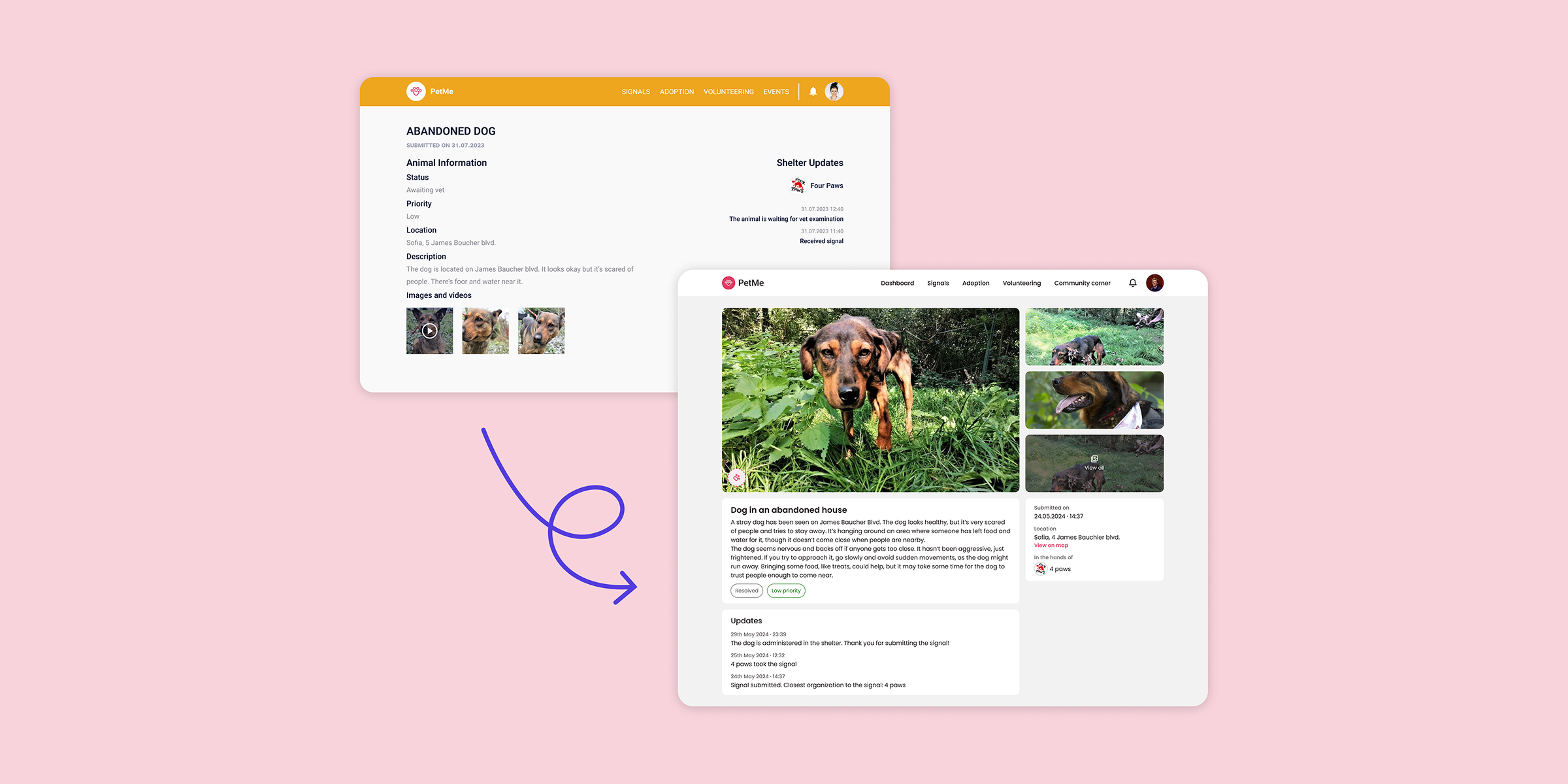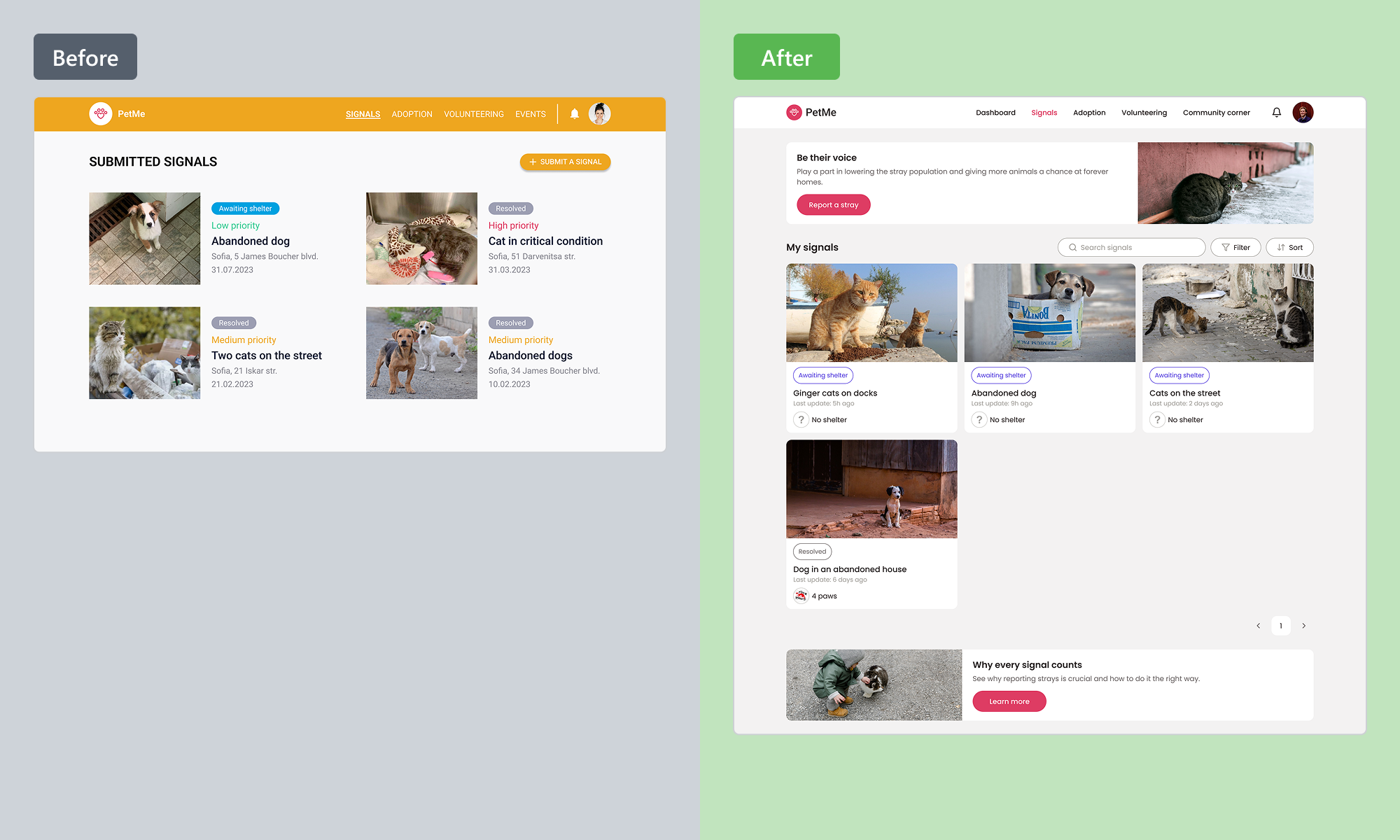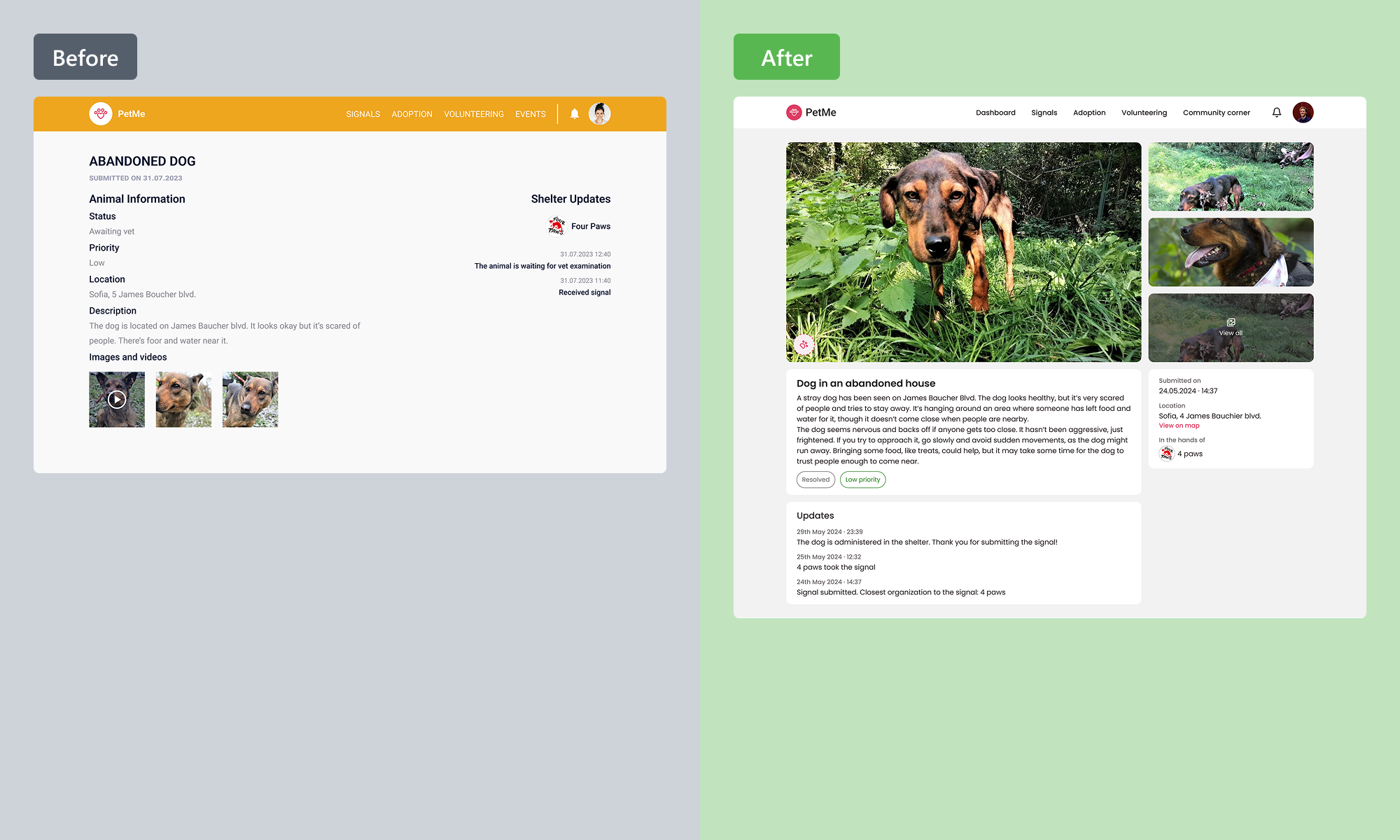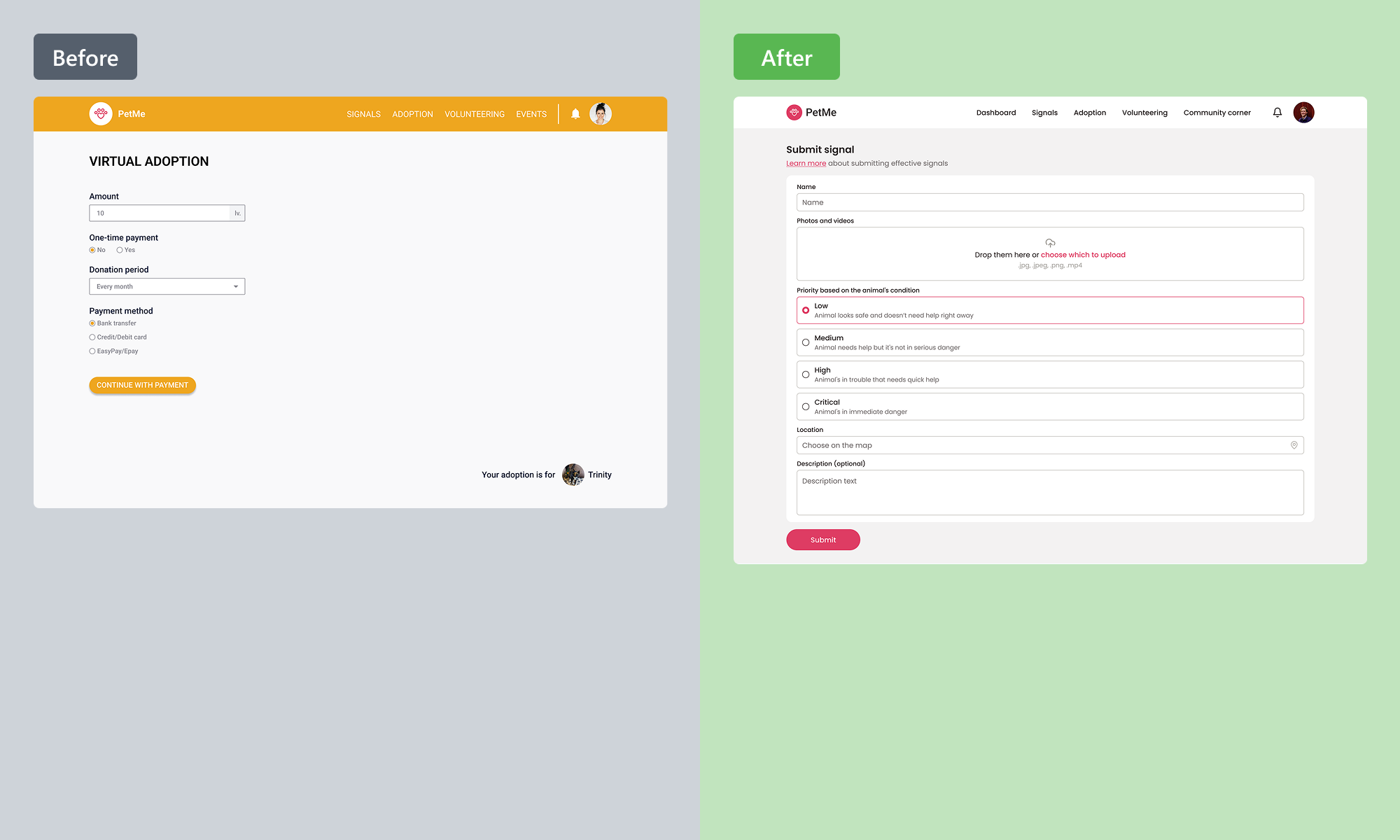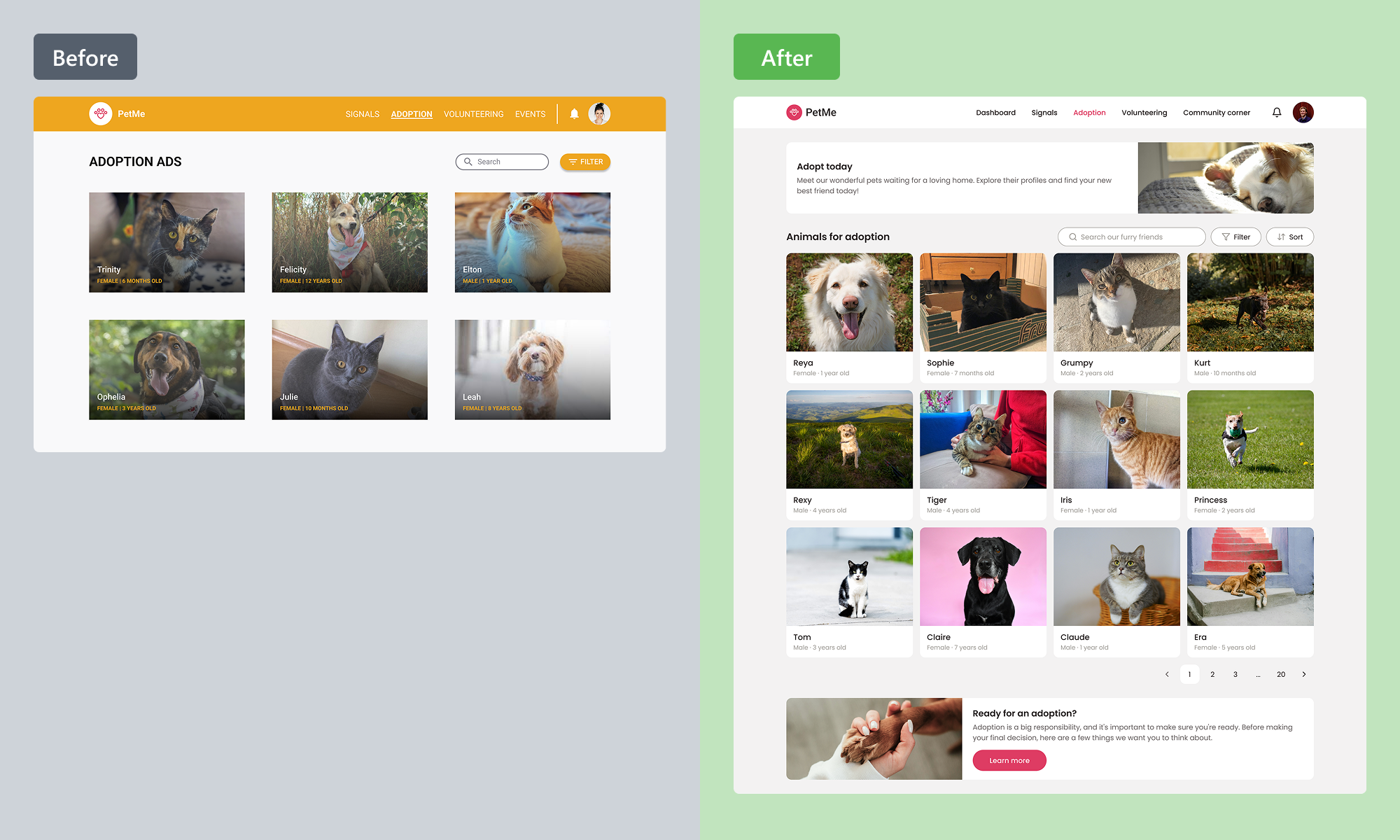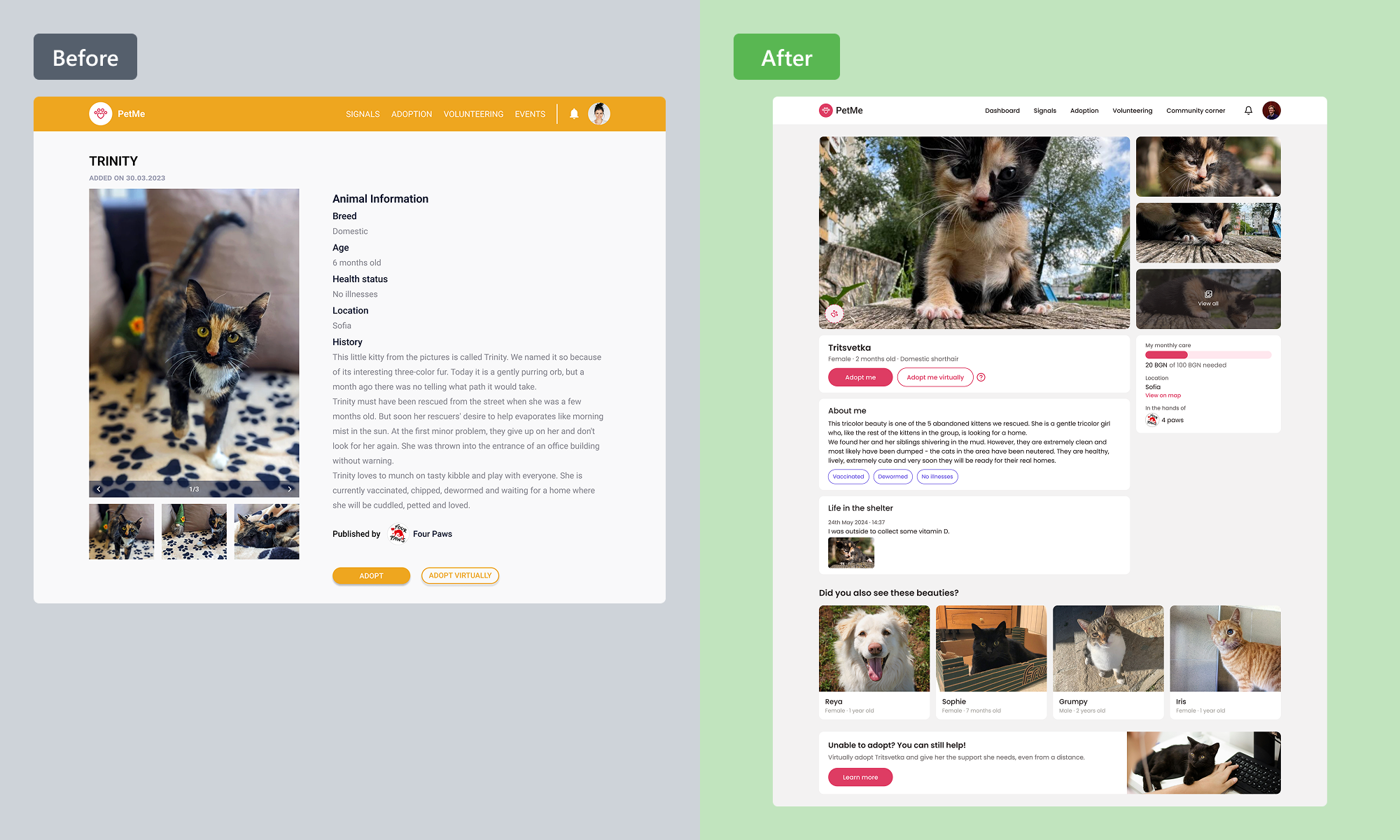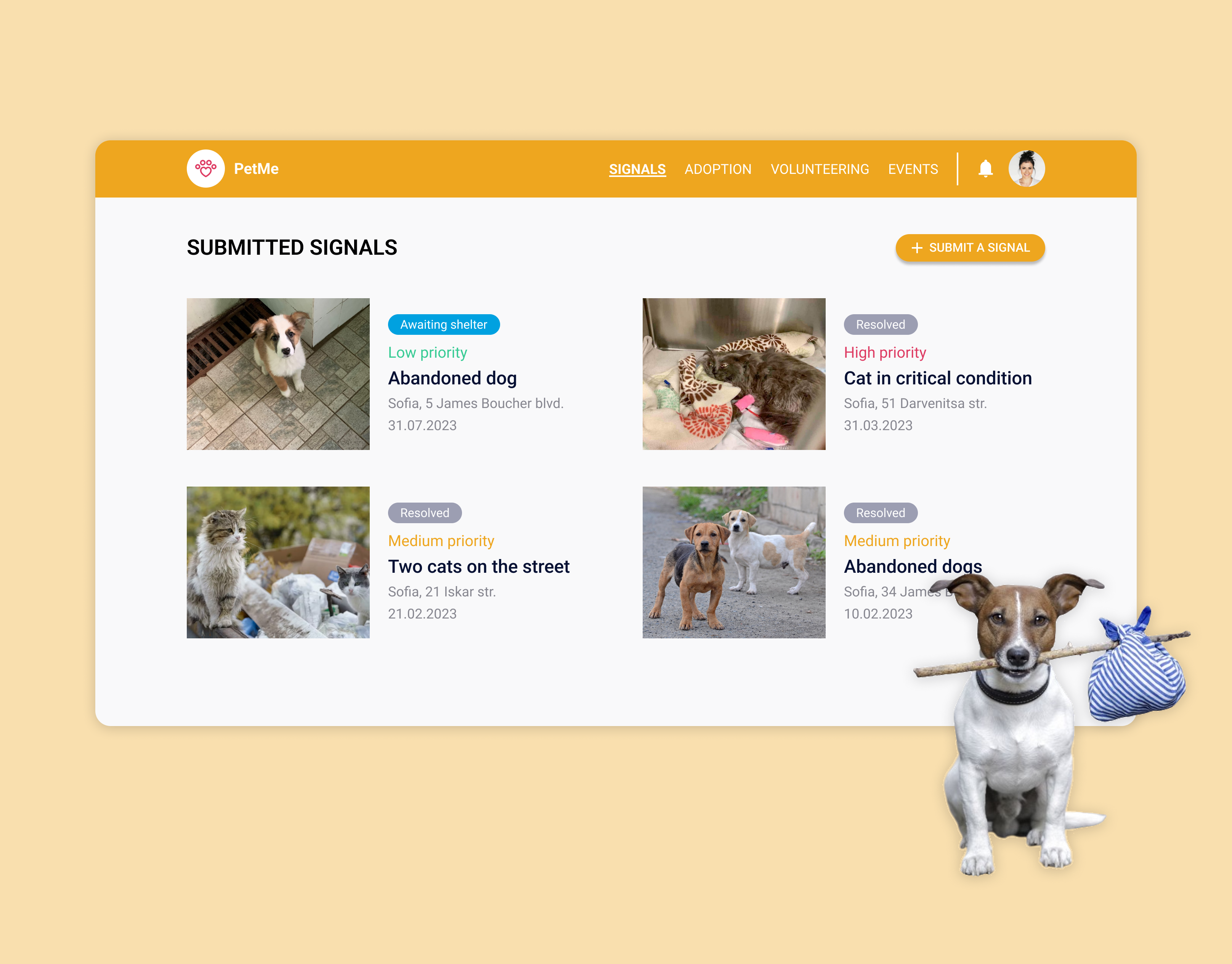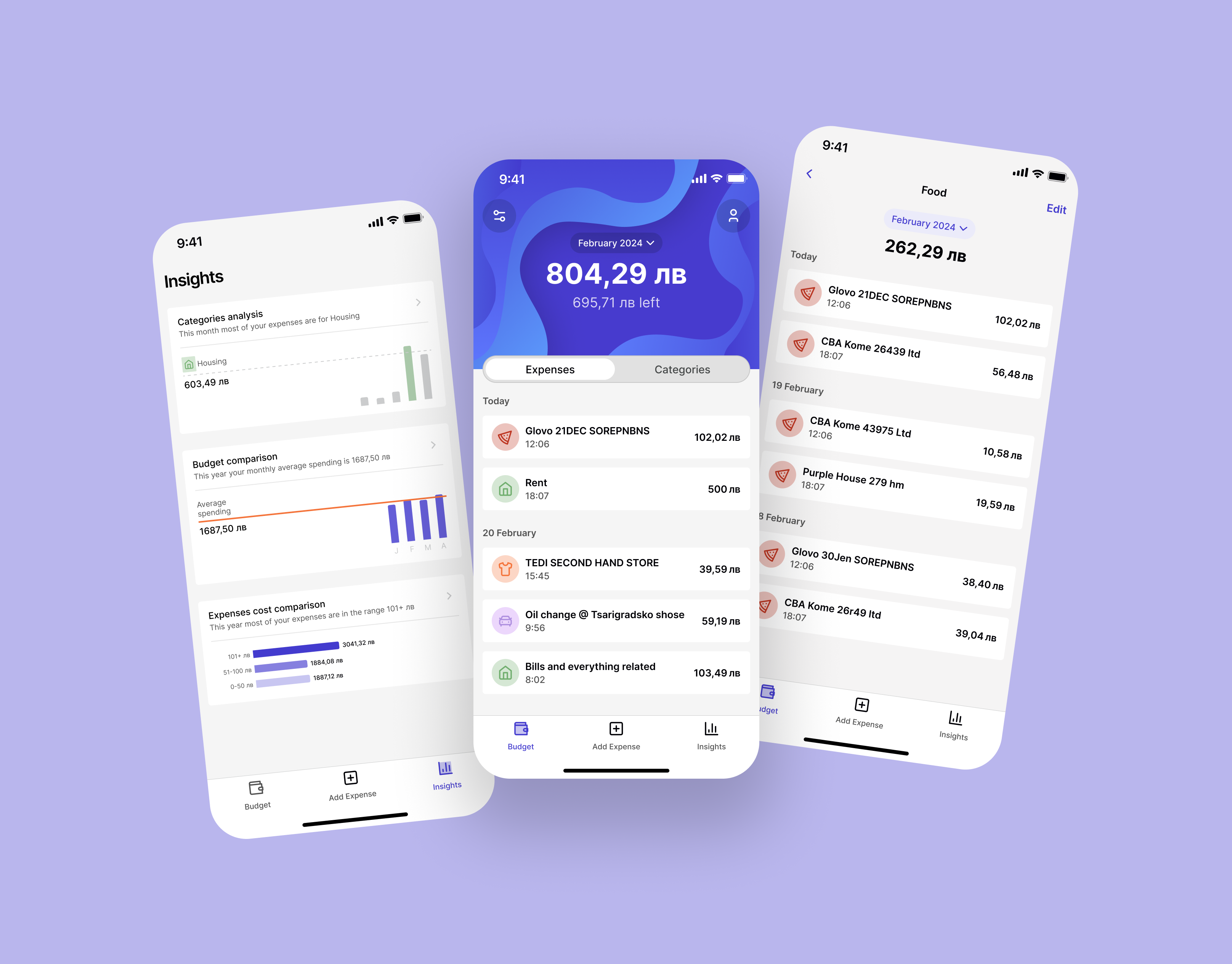
The Problem
Questioning the Design's Emotional Value
While presenting PetMe in a university course, our professor highlighted a critical flaw: the project lacked emotional impact on future users. This feedback caught us by surprise. How did we miss this? Our goal was always to inspire empathy and a sense of purpose in helping animals, but we realized we hadn't fully tapped into what would make people feel truly invested.
The Solution
A New Approach
A year later, I revisited the project and rethought how functionalities were executed and how the interface looked and felt. This time, the focus was on ensuring every element created an emotional connection. PetMe needed to go beyond utility - reminding users of the lives they could help change and fostering empathy at every interaction.
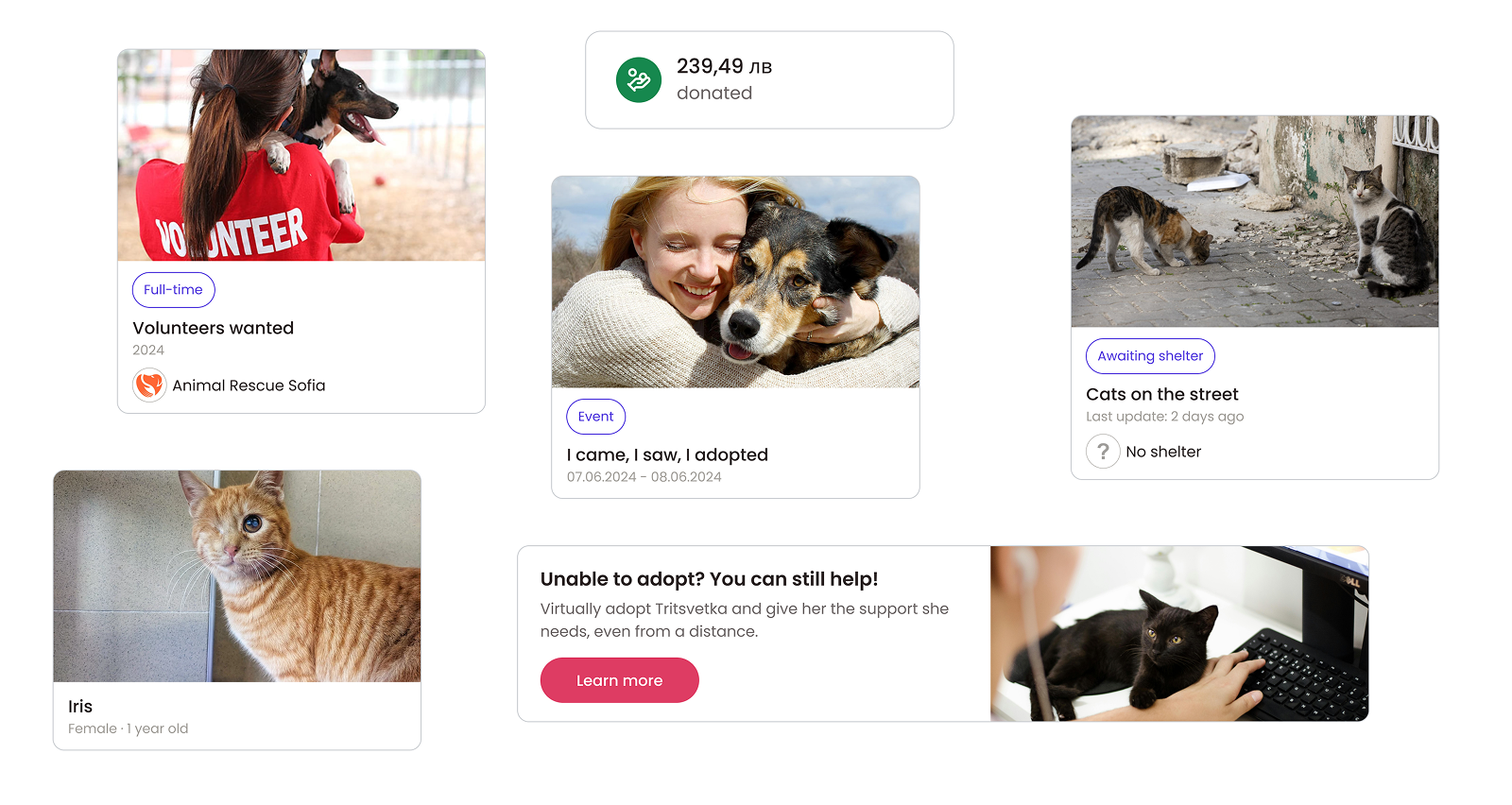
Research
Competitor Analysis: Storytelling with Impact
Shelters and organizations like Four Paws, Stray Angels Bulgaria, and Redom give each animal a voice, using strong visuals and storytelling to create empathy. They emphasize the humane aspect, reminding people of their shared responsibility.
Emotional Triggers Drive Action
Animal stories and progress updates inspire stronger empathy than plain statistics. Seeing a dog or cat's face and reading their journey motivates people to adopt, volunteer, or donate.
The Rise of Virtual Adoption
Not everyone can physically adopt a pet, but many are willing to help financially. Virtual adoption is a growing trend that enables people to support animals consistently without the responsibilities of ownership.
Community Builds Engagement
Research into NPOs and competitor platforms showed that spaces for learning, sharing, and connecting help retain supporters longer. Community features give users belonging and purpose beyond one-off actions.
Final Design
Personalized Impact at a Glance
Not every user engages with all features, so personalization was key. A customizable dashboard shows each user's contributions and recent updates, creating a sense of ownership and purpose.
Simplifying Stray Reporting
Reporting strays isn't a daily activity, so clear guidance matters. The redesigned flow helps users provide crucial details - like location and condition - making it easier for shelters to respond. Users also receive updates, ensuring they know the animal is safe.
Finding the Right Match
Many animals spend most of their lives in shelters, waiting for homes. PetMe supports both adoption and virtual adoption, helping people contribute even if they can't adopt physically. Each animal has a clear profile and adoption options, making the process transparent and approachable.
Empowering Volunteers
Volunteering may feel like a big commitment, but shelters always need help. From walking dogs to feeding or cleaning, every action matters. PetMe connects users with tasks that fit their skills and schedules, making it easier to contribute.
Building Community
The community corner offers resources, events, and educational content about animal welfare. It's a space for learning and connecting with like-minded people, keeping users engaged and motivated to support the cause.
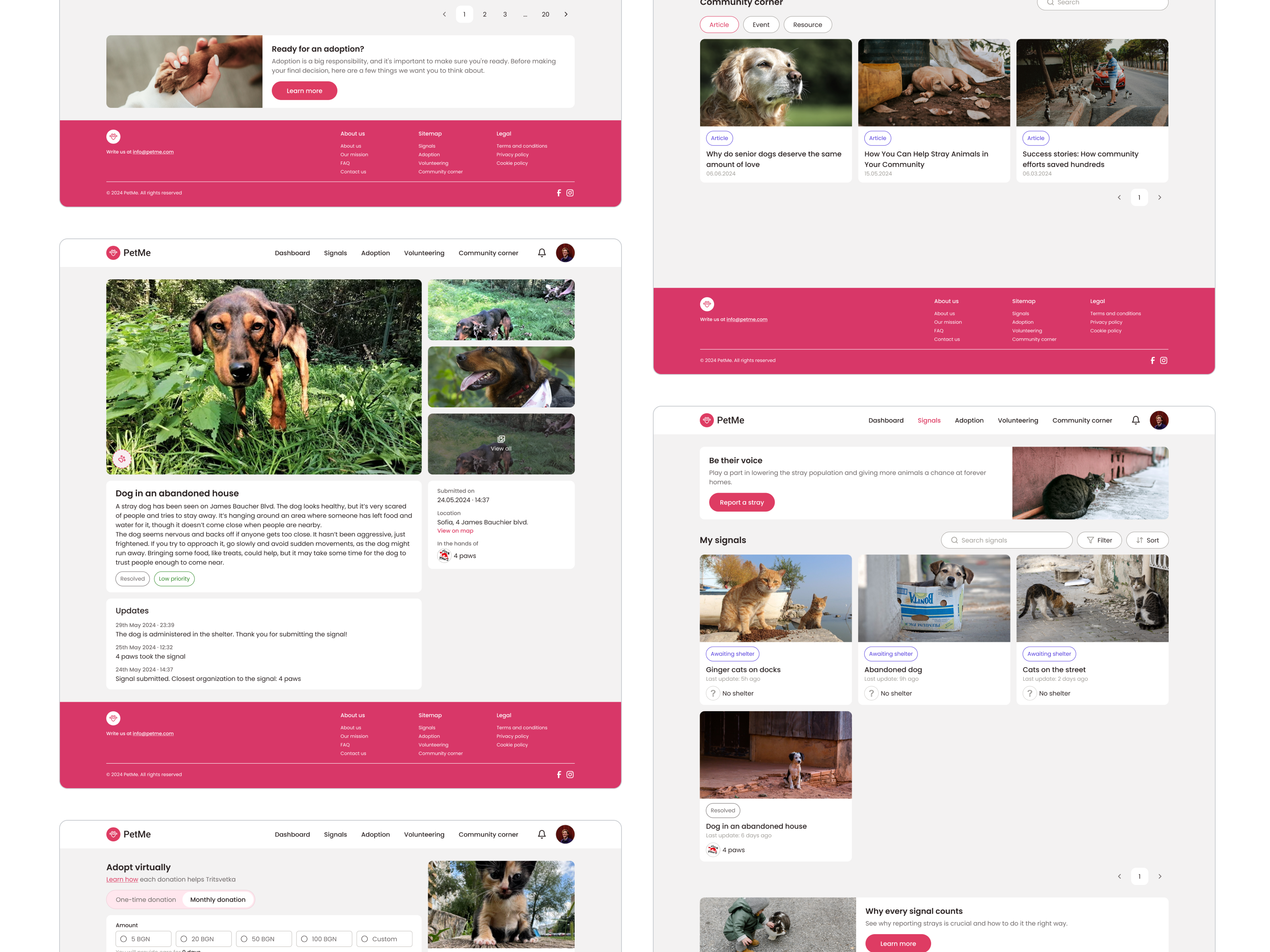
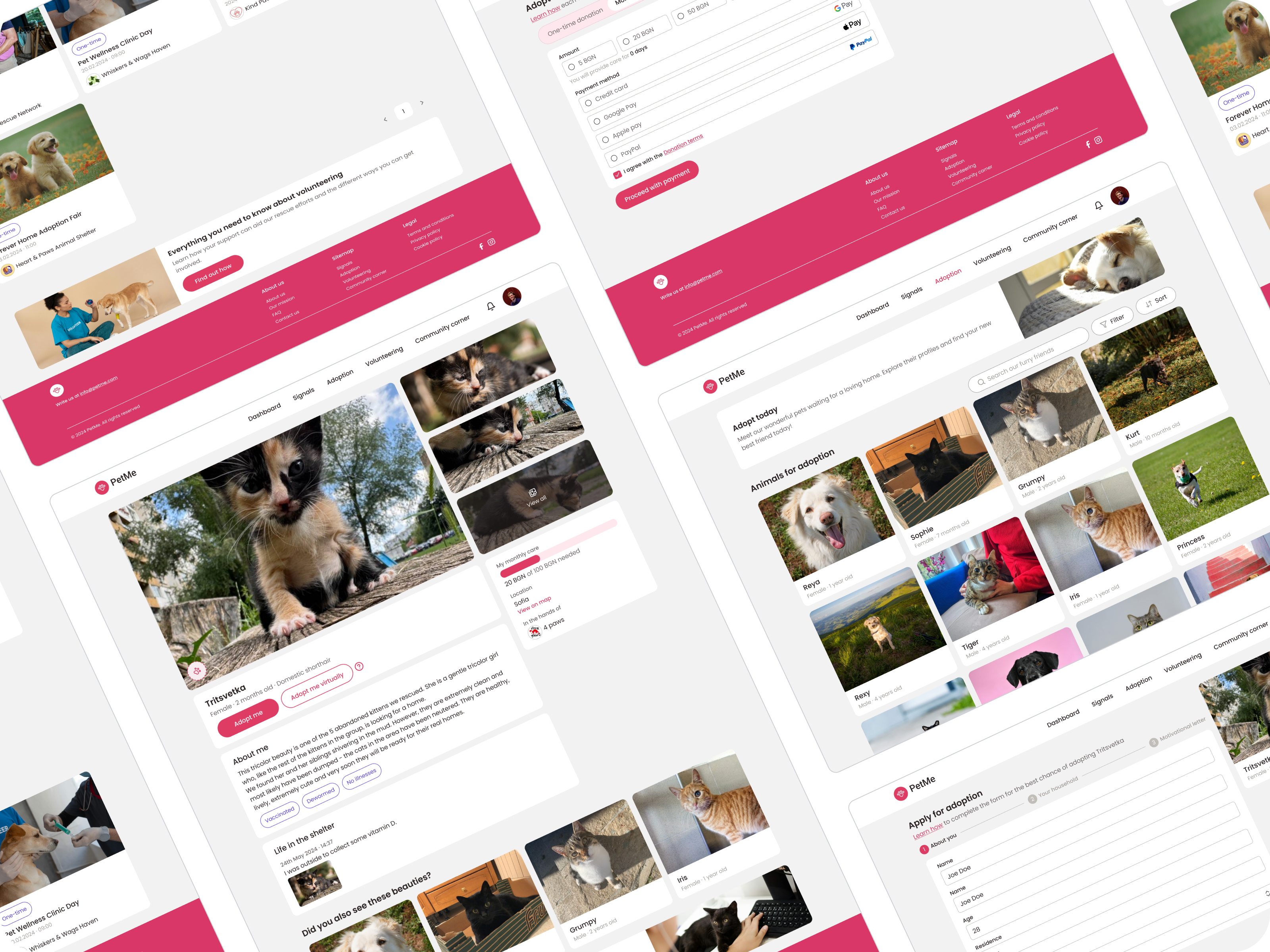
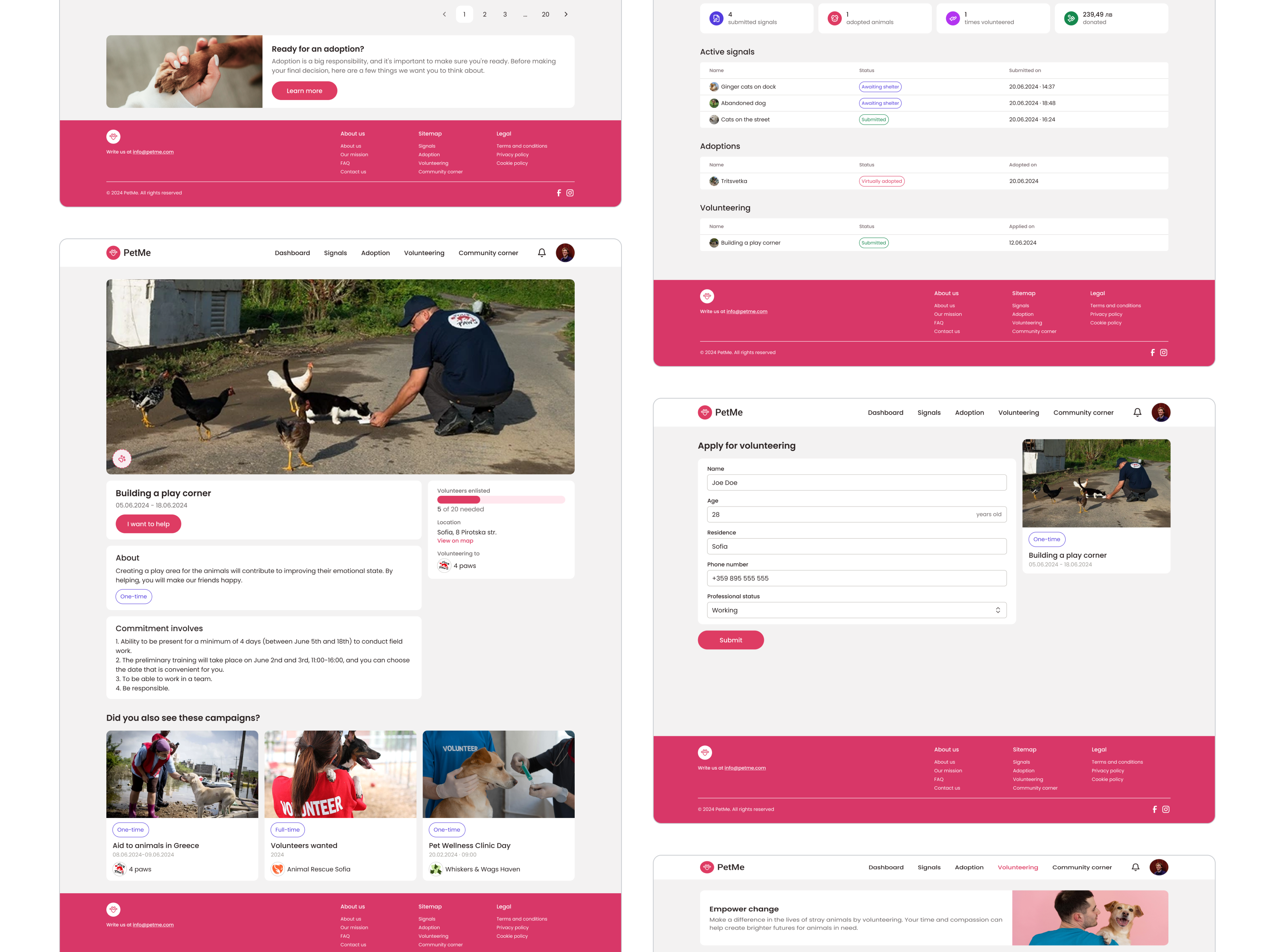
The Outcome
Emotional Storytelling Works
The redesigned PetMe creates stronger emotional connections by placing animal stories and visuals at the center of the experience. Personalized dashboards highlight each user's impact, turning actions into meaningful contributions.
Key Insights
- Empathy through design - Story-driven content and humane visuals transform PetMe from a utility into an emotionally engaging experience;
- Streamlined journeys - Clearer flows for reporting, adoption, and volunteering reduce friction and make taking action faster and easier;
- Motivation to act - By visualizing impact and offering flexible ways to help, PetMe encourages adoption attempts, volunteer sign-ups, and ongoing support;
- Unique positioning - Combining functionality with emotional storytelling sets PetMe apart, blending practical value with a sense of shared responsibility.
